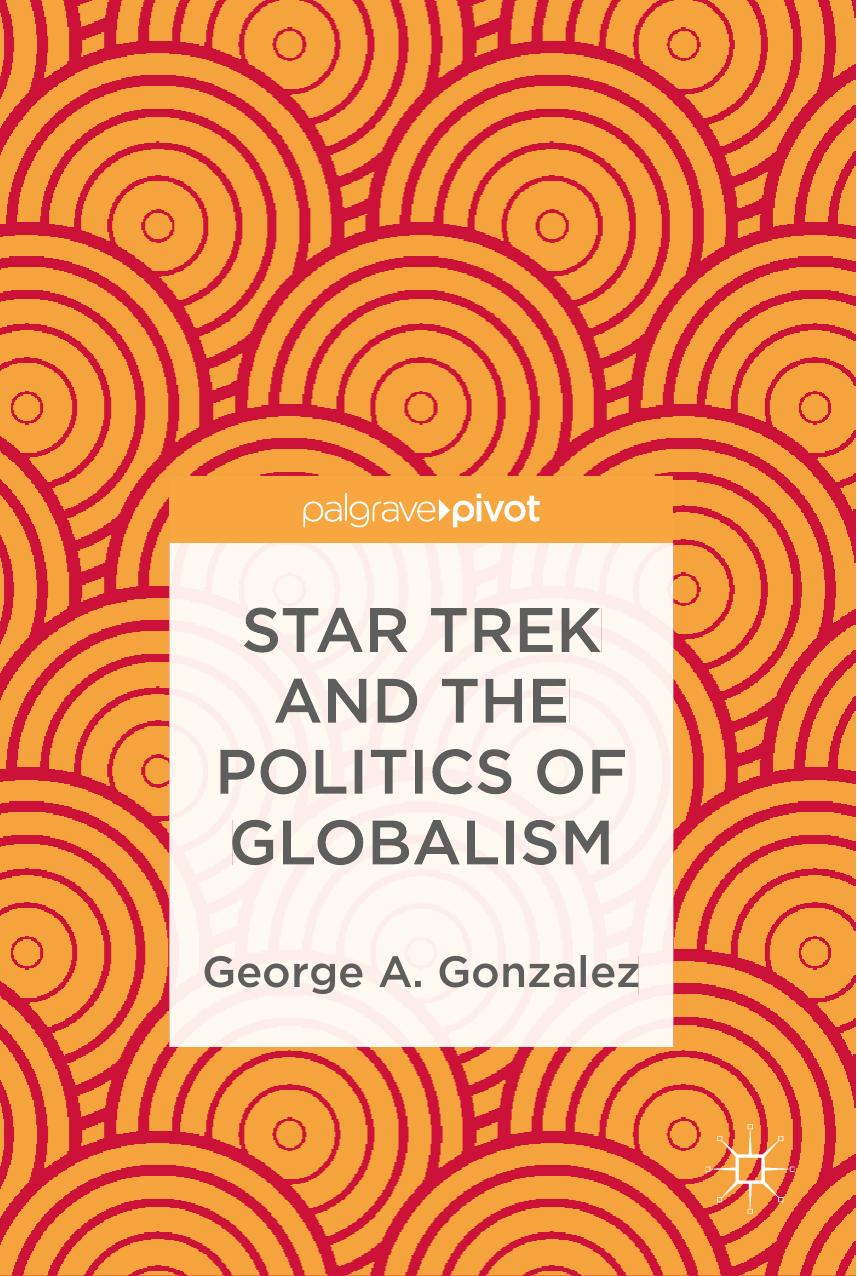Star Trek and the Politics of Globalism by George A. Gonzalez

Author:George A. Gonzalez
Language: eng
Format: epub, pdf
ISBN: 9783319954110
Publisher: Springer International Publishing
Dilithium Crystals and Plutonium Energy
The progressive politics of Star Trek, in many ways, follows from “dilithium crystals”—which are cast as naturally occurring. According to the Star Trek franchise these minerals contain massive amounts of energy 1 —enough to propel huge star ships at speeds faster than light (“warp”); enough to convert matter into energy and vice versa (“replicators”). These crystals hold enough energy to even take people apart at the molecular level and put them back together in one piece (“transporters”). It is important to stress that the technology/know-how to accomplish these feats is not necessarily fantasy (i.e., outside the realm of possibility). Dilithium crystals are, however, fantasy. These crystals are stable/inert, and when spent can readily be disposed of. With dilithium crystals providing such massive amounts of surplus energy—with little environmental liabilities—the issue at the core of much of human politics—who gets what, when, and how?—is rendered mute. Virtually everyone’s material needs/desires can be met with little political (or environmental) friction.
While in terms of science, engineering dilithium crystals can be derided as fantasy and utopian, what dilithium crystals do (as a literary device) is highlight how energy is central to progressive politics. A source of energy should ideally be progressive in a twofold sense: one, yielding enough energy to meet everyone’s needs, and, two, have a minimal environmental impact and/or risk. Utilizing this criteria, fossil fuels fail on both counts. Fossil fuels have the environmentally devastating effect of global warming—among a number of significant environmental liabilities. Other than global warming, fossil fuels can be polluting (e.g., oil spills 2 ), environmentally damaging to extract (e.g., mountaintop removal in the mining of coal 3 ), and despoiling of water sheds (e.g., hydraulic fracturing of gas shale 4 ). Fossil fuels are finite and relatively scarce, which means that the global population has uneven access to a commodity central to modernity—electricity. Unfortunately, the American hydrofracking revolution (hydraulic fracturing of gas and oil shale) and the continuing development of the Canadian oil sands is serving to block the broader development/deployment of clean renewable energy, as well as relatively carbon free nuclear energy. Short term abundance of fossil fuels serves to lower their price and makes a transition to other energy sources less likely. 5
I have published a series of books on U.S./global energy politics. 6 The U.S. has historically shunned wind, solar. Additionally, while the U.S. was the prime sponsor of nuclear energy in the West in the 1950s and 1960s, it turned against this source of energy in the late 1970s under the guise of nuclear weapons proliferation. In fact, the American government adopted a hostile tack toward nuclear energy when it became evident that it could no longer monopolize any aspect of atomic energy technology. 7 Very significantly, part of the U.S. anti-nuclear policy is the overt hostility to plutonium energy—instituting a policy and politics intended to prevent other countries from developing this source of energy.
The U.S. opposition to plutonium as an energy source took the form of the Nuclear Non-Proliferation Act of 1978.
Download
Star Trek and the Politics of Globalism by George A. Gonzalez.pdf
This site does not store any files on its server. We only index and link to content provided by other sites. Please contact the content providers to delete copyright contents if any and email us, we'll remove relevant links or contents immediately.
| Coloring Books for Grown-Ups | Humor |
| Movies | Performing Arts |
| Pop Culture | Puzzles & Games |
| Radio | Sheet Music & Scores |
| Television | Trivia & Fun Facts |
Everybody Lies by Seth Stephens-Davidowitz(1705)
You're Not Listening by Kate Murphy(1624)
Sex, Drugs, and Cocoa Puffs by Chuck Klosterman(1277)
The American Scene by Henry James(1253)
The Attention Merchants by Tim Wu(1245)
Empire of Illusion by Chris Hedges(1228)
Simulacra and Simulation by Jean Baudrillard(1221)
The Caped Crusade by Glen Weldon(1110)
The House of Kennedy by James Patterson(1108)
Sense of Wonder by Bill Schelly(1082)
Predictably Irrational by Dan Ariely(1040)
Fast Food Nation by Eric Schlosser(1034)
The 50th Law by 50 Cent & Robert Greene(1010)
Free Women, Free Men by Camille Paglia(961)
What the Dog Saw: And Other Adventures by Malcolm Gladwell(919)
At Home by Bill Bryson(912)
Thank You for Arguing (Revised and Updated) by Jay Heinrichs(883)
Need to Know by Timothy Good(874)
Propaganda by Edward L. Bernays(866)
